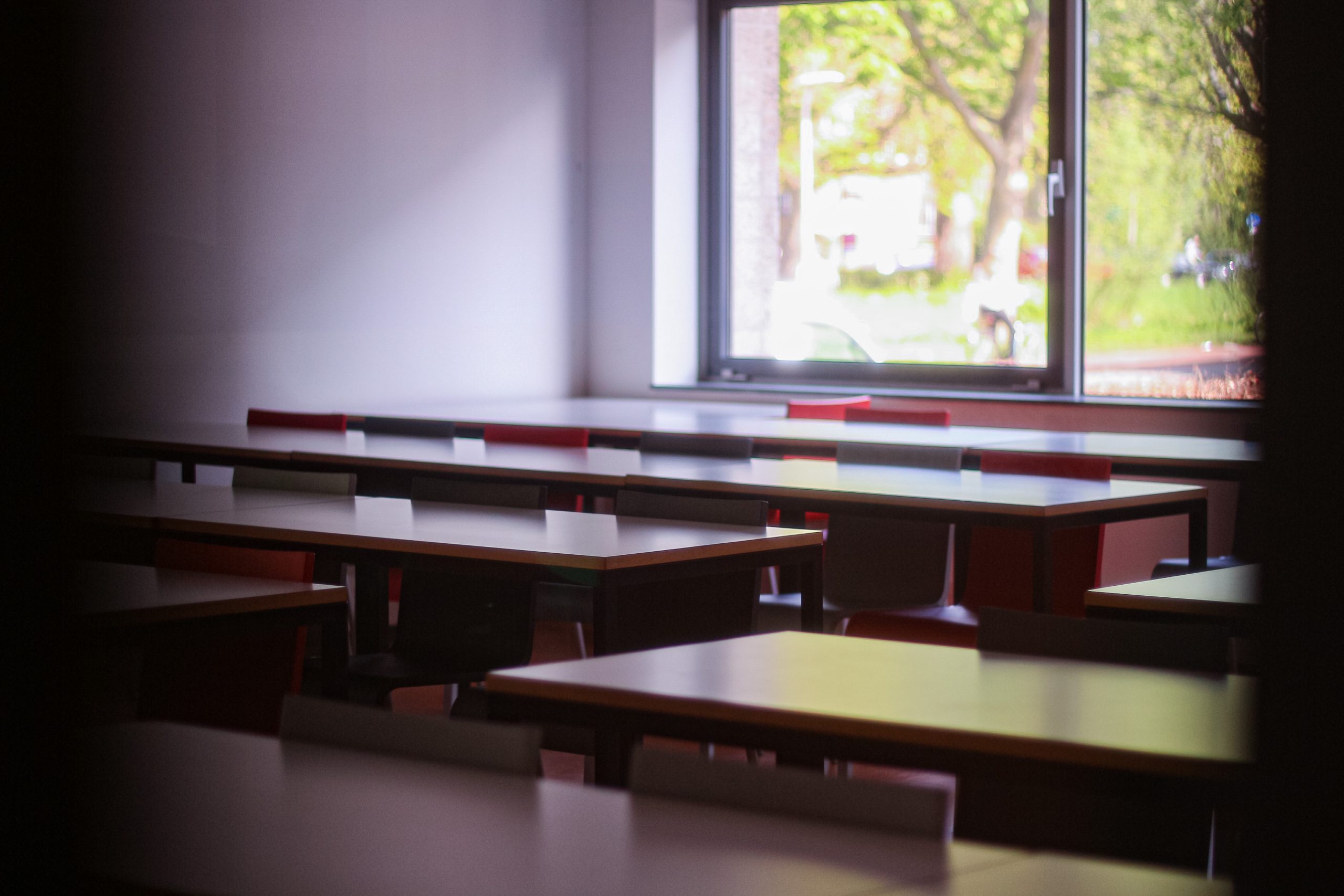No wonder students are staying away from in-person lectures, says Joshua de Roos (Dutch Student Union). He thinks there will be more enthusiasm if education is changed.
Now that the lecture halls are open again, a surprisingly large number of students are still staying at home. (Photo: Justyna Botor)
Online learning made a considerable advance during the COVID-19 pandemic. Now that the lecture halls are open again, a surprisingly large number of students are still staying at home. That doesn’t indicate that the students are lazy, says Joshua de Roos in an opinion piece in De Volkskrant (in Dutch). He feels that it is more an indication of the “passive and individual nature of higher education”.
You write that big lectures give little opportunity for in-depth discussions and personal coaching by the lecturer. Isn’t that precisely what working groups are for?
“Sure, and there are opportunities in working groups, but still not enough. At the same time, lectures are becoming bigger. I’m in favour of more opportunities in higher education for interaction in smaller groups.”
How well attended are working groups since the coronavirus measures were abolished?
“We understand that working groups are not being well attended either. They are probably better attended than lectures but the numbers are still lower than before the pandemic. Higher education institutions are trying to overcome this by making attendance compulsory. In my opinion, we ought to be asking ourselves why students are staying away.”
Doesn’t it mean that students also have little interest in working groups, despite the opportunities for interaction and discussion?
“I think they are interested in them. But because of the COVID-19 pandemic some students are not fully aware of what they are missing if they don’t attend lectures in person. They have become accustomed to focusing only on what they need to pass an exam. They can generally get that information from a book. And in working groups the material is often merely repeated, while interesting ethical discussions are not always held.”
‘Education is more motivating when it is more than knowledge transfer’
So is the substantive knowledge they can gain from lectures no longer of interest to students? After all, they chose their own study programme.
“Some students choose a particular study programme because it can enable them to get a good job, not always out of personal interest. But that knowledge is definitely of importance for students because they need it to graduate. I think it is more motivating if the teaching relates to more than the transfer of knowledge alone, though. It would be good if it were linked more often to personal development and if more attention were to be paid to students’ mental well-being.”
Lecturers are busy people. Wouldn’t that attention be to the detriment of the subject matter?
“A lot of personal development is in the link you make between the subject matter and your own life, who you are and the world in which you live. I think they go hand in hand. If we incorporate that personal development and interaction more into teaching, it will become more enjoyable and more interesting. Students have lost the connection to their higher education institution, so they are coming less frequently to campus.”
Isn’t it a chicken and egg situation? Wouldn’t students feel more connected to each other and their lecturers if they turned up at lectures?
“Naturally students have their own responsibility in that regard. I do think, however, that there would be greater interest in in-person lectures if the teaching were to be organised differently. I would encourage students to be critical about their classes and to state clearly what they need. It’s worthwhile starting a discussion on that topic.”
HOP, Josefine van Enk
Translation: Taalcentrum-VU
Do you have a question or comment about this article?
redactie@hogeronderwijspersbureau.nl


Comments are closed.